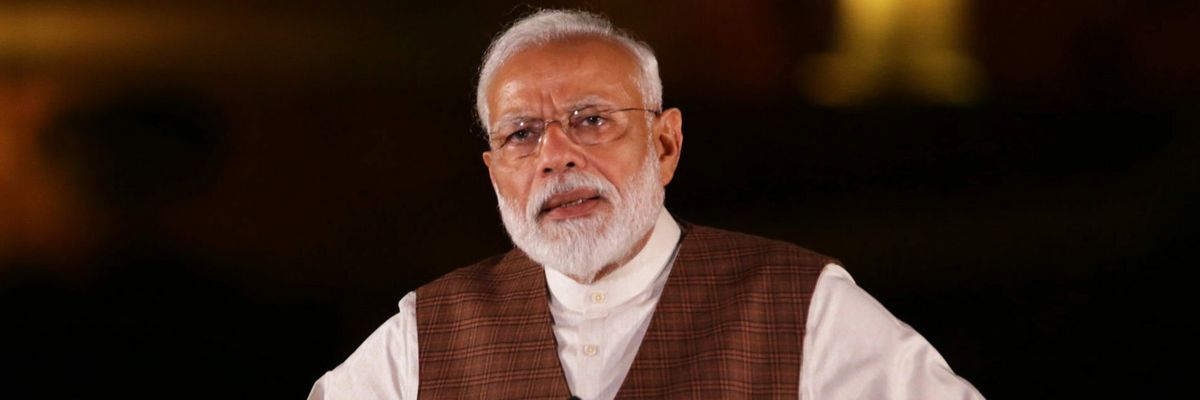In a speech on Monday commemorating the 75th anniversary of India’s independence, Prime Minister Narendra Modi pledged to turn India into a developed nation in 25 years.
“We have to make India a developed nation within our lifetime,” Modi said. Addressing the young twenty-something members of the audience, he added that “when India will celebrate 100 years of independence you will be aged 50 to 55, which means the golden period of your life — the 20 to 25 years of your life — is the time to make the dreams of India come true.”
Speaking ahead of the 2024 general elections, we see Modi’s attempt to revitalize the pro-business and growth-centric platform that got him elected in 2014. His handling of the Covid-19 pandemic hit the country hard, as mismanagement of lockdown measures caused the economy to fall into an unprecedented recession in 2020. Thus, whether or not he can keep the economy back on track in the long run will likely determine his re-election chances.
While India has built one of the fastest growing economies since independence, it is still very much considered a developing nation today; it is currently classified as a “lower middle income” economy by the World Bank. Millions of Indians continue to experience poverty as a daily reality while per capita income remains below the global average. Additionally, Indian exports account for only 2 percent of the global total, compared to 13 percent for neighboring China.
As India’s population is predicted to surpass that of China’s as the world’s largest by next year, the country now more than ever will need to find ways to accelerate economic growth for managing such a responsibility.
Historically, India is estimated to have had one of the largest economies in the world — from around the 1st Century AD to the beginning of British rule in the subcontinent. However, by the time the British left, the country was impoverished with a GDP of only $20 billion, according to scholars. The chaotic partition of the territory into Hindu-majority India and Muslim-majority Pakistan added to the hardship by displacing more than 15 million people and causing the deaths of one to two million.
Despite all odds though, the Indian economy has grown remarkably since independence, particularly following the economic reforms of the 1990s under Prime Minister PV Narasimha Rao, which opened the country up to large-scale foreign investment. Today, India’s over $3 trillion economy stands as the world’s fifth largest.
As the Indian economy continues to rapidly grow, the country’s geopolitical importance has become recognized. Despite maintaining a lukewarm relationship with the United States during the Cold War as a result of India’s non-alignment policy, the relationship has warmed considerably in the 21st century. While India has not formally abandoned nonalignment, the two countries have found common ground in balancing the rise of China, leading to their partnership in the Quad, an active security grouping in the Indo-Pacific, along with Japan and Australia.
India has also earned a spot for itself as a key member state in numerous important global institutions and multilateral groupings, such as the G20, Shanghai Cooperation Organization, and BRICS. Free trade agreements have been forged with ASEAN and the European Union, though India’s refusal to join the RCEP — the world’s largest trade bloc — has been met with accusations of economic protectionism that undermine Modi’s image as a pro-business leader.
It is clear that India has a lot of work to do if it is to become a developed country anytime in the near future, not to mention in the next 25 years. The progress the country has made since independence should not be dismissed, yet ample room for improvement remains, particularly in further opening the Indian economy and utilizing the country’s population to its full potential. As Western companies today look for new labor sources and consumer markets to lessen their dependence on China, India could provide a much needed solution.
Modi has signaled an ambitious yet important vision for the future of the world’s soon-to-be most populous nation. Perhaps reaching developed country status in 25 years seems like somewhat of a reach, but India’s desire for a greater role in the global economy and international order is apparent. Should Modi follow up his words with concrete action, it will be time for other countries to pay attention and realize the mutual benefits of taking India up on this initiative.
















